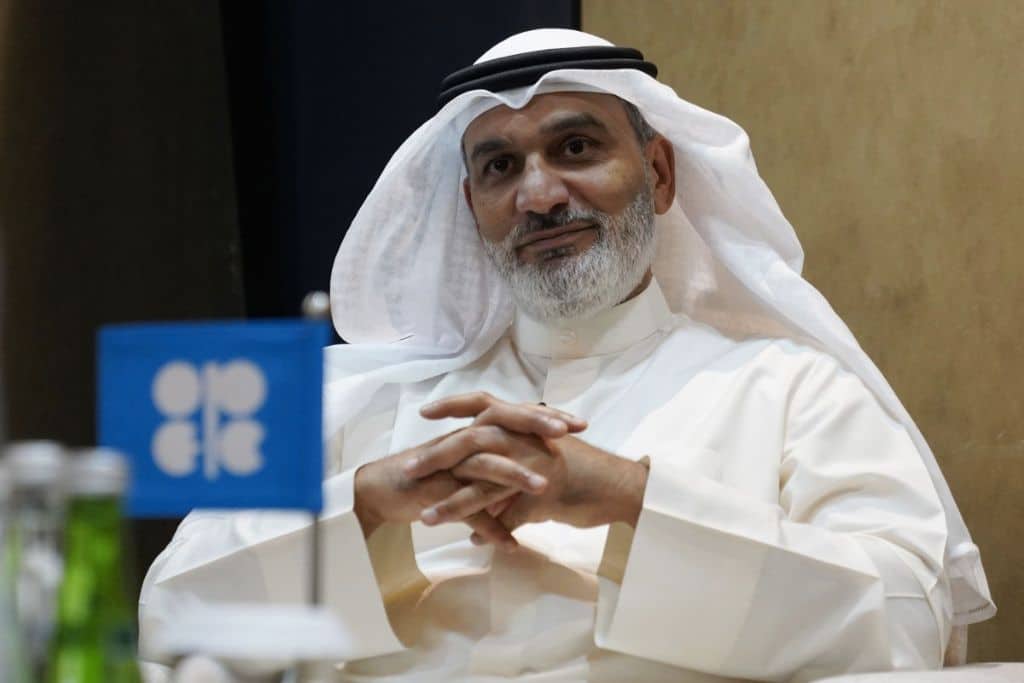In a leaked letter, the head of OPEC said COP28 is putting “undue and disproportionate pressure against fossil fuels.”
—
The head of the world’s most powerful oil and gas cartel has called on its members to lobby against any call for the reduction or phase-out of fossil fuels at the two-week UN climate summit in Dubai.
In a letter to 13 members of the Organization of the Petroleum Exporting Countries (OPEC) written in response to the second draft of the COP28 final agreement published last week, OPEC’s head Haitham Al Ghais said the text put “undue and disproportionate pressure” on the fossil fuel industry, risking a “tipping point with irreversible consequences.” Concerned about the possibility that the climate summit would end in a deal to phase-out fossil fuels, Al Ghais urged OPEC members to “proactively reject any text or formula that targets energy i.e. fossil fuels rather than emissions.”
“While OPEC Member Countries and Non-OPEC Countries participating in the Charter of Cooperation (CoC) are taking climate change seriously and have a proven record on climate actions, it would be unacceptable that politically motivated campaigns put our people’s prosperity and future at risk,” the letter, first obtained by Reuters and Bloomberg, read.
The comments sparked the ire of climate activists and politicians around the world. Colombia Environment Minister Susana Muhamad told Axios that they were something “out of a science fiction movie.”
COP28, which comes to an end today after two weeks of intense negotiations, has been controversial from the start, with climate activists and some politicians calling it a “farce.”
The fossil fuel-loaded summit, which this year has an unprecedented presence of oil and gas lobbyists – at least 2,456 according to a recent analysis – is hosted in one of the world’s richest petrostates in the world – the United Arab Emirates (UAE), and has the head of the world’s 12th largest oil company by production, Sultan Al Jaber, as its president.
Last week, Al Jaber faced backlash for comments he made during an exchange with former Irish president Mary Robinson at a live online event on November 21, where he said that there is “no science out there, or no scenario out there, that says that the phase-out of fossil fuel is what’s going to achieve 1.5C.”
Similar to Al Ghais, Al Jaber also often emphasised the need to phase out fossil fuel emissions, rather than production, by focussing on the development of new emission reduction technologies. “In a pragmatic, just and well-managed energy transition, we must be laser-focused on phasing out fossil fuel emissions, while phasing up viable, affordable zero-carbon alternatives,” he said at a climate conference earlier this year.
What’s more, an investigation by the Centre for Climate Reporting (CCR) and the BBC revealed last week that the COP28 presidency was planning to use meetings with foreign countries to push for oil and gas deals. Despite al Jaber repeatedly denying his involvement, leaked documents show that fossil fuels were among the talking points in meetings between UAE energy companies and 15 nations ahead of the summit.
Many worry that the unprecedented pressure from the fossil fuel industry will affect the summit’s outcome, which the head of the UN António Guterres says must end with a deal to phase out fossil fuels.
You might also like: COP28 Week 1: Recap


















